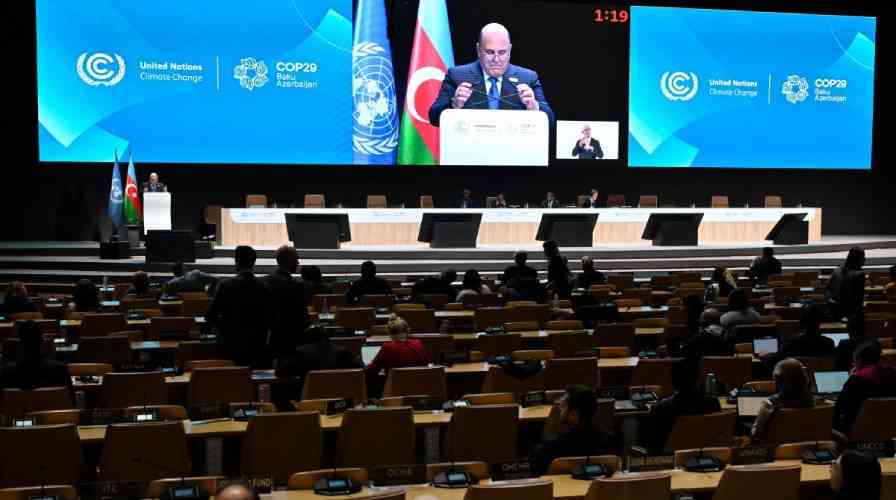×
The Standard e-Paper
Home To Bold Columnists

A fresh draft of a UN climate deal released Wednesday proposes concrete options to raise funding for poorer countries, but leaves unresolved sticking points that have long delayed an agreement.
Landing a new accord to boost money for climate action in developing countries is the top priority of negotiators at the UN COP29 summit in Azerbaijan.







